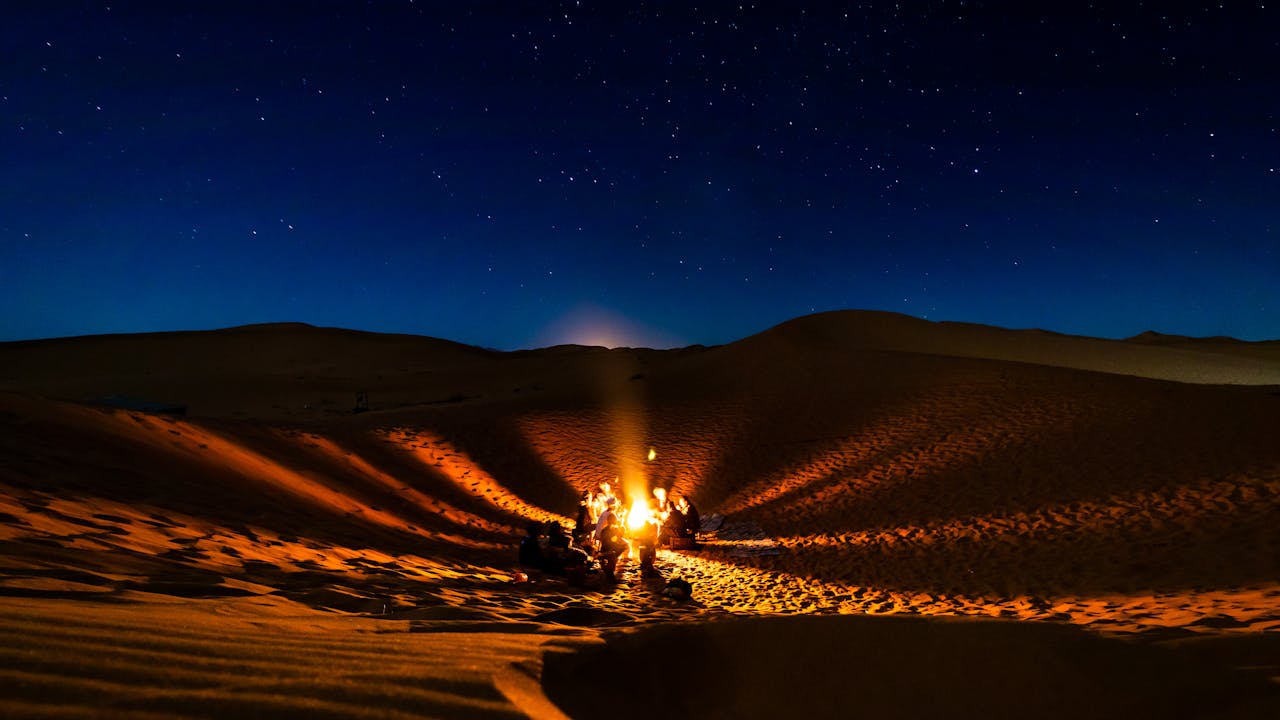Deserts, with their vast expanses of sand dunes, rugged mountains, and extreme climates, have long captured the imagination of explorers seeking adventure and discovery. From the ancient caravans of the Silk Road to modern scientific expeditions, desert exploration encompasses a rich tapestry of history, culture, and natural wonders. This long-form piece delves into the captivating world of desert exploration, tracing its history, showcasing remarkable expeditions, examining the challenges faced by explorers, and contemplating the enduring allure of Earth’s arid landscapes.
Ancient Trails and Trade Routes
Desert exploration has deep roots in human history, dating back to ancient civilizations that traversed vast stretches of arid terrain in search of trade, wealth, and knowledge. The Silk Road, stretching from China to the Mediterranean, facilitated the exchange of goods, ideas, and cultures between East and West. Caravans of camels carried silk, spices, and precious metals across the deserts of Central Asia, forging connections between distant lands and peoples.
Conquering the Unknown: European Explorers
During the Age of Exploration, European adventurers set out to conquer the world’s deserts in search of fame, fortune, and scientific discovery. Explorers like Gertrude Bell, Richard Burton, and T.E. Lawrence ventured into the deserts of North Africa and the Arabian Peninsula, mapping uncharted territories, studying indigenous cultures, and unraveling the mysteries of ancient civilizations. Their exploits captured the public’s imagination and inspired generations of future explorers.
Scientific Expeditions and Discoveries
In the modern era, desert exploration has evolved into a multidisciplinary endeavor, blending scientific research with adventure and conservation. Expeditions led by geologists, biologists, and archaeologists study desert ecosystems, geological formations, and ancient artifacts to better understand Earth’s natural history and cultural heritage. Projects like the Mars Desert Research Station simulate Martian environments to prepare for future human missions to the Red Planet.
Survival in Harsh Environments
Exploring deserts presents a host of challenges, from scorching temperatures and dehydration to sandstorms and rugged terrain. Desert explorers must possess specialized skills in navigation, wilderness survival, and first aid to safely navigate the harsh environment. Water conservation, sun protection, and proper equipment are essential for staying hydrated and protected from the elements. Despite the dangers, the allure of the desert continues to draw adventurers seeking solitude, self-discovery, and spiritual renewal.
Adapting to Change: Desert Conservation
Deserts are among the most fragile and vulnerable ecosystems on Earth, threatened by human activities such as overgrazing, habitat destruction, and climate change. Conservation efforts aim to protect desert biodiversity, restore degraded habitats, and promote sustainable land management practices. National parks and protected areas preserve pristine desert landscapes, providing refuge for endangered species and opportunities for ecotourism and outdoor recreation.
Unveiling Ancient Mysteries
Deserts are repositories of ancient civilizations, harboring clues to humanity’s past and insights into our shared cultural heritage. Archaeological excavations in desert regions have uncovered ancient cities, temples, and tombs, revealing the ingenuity and creativity of past civilizations. The discovery of the Dead Sea Scrolls in the caves of Qumran and the rock-cut temples of Petra in Jordan are testament to the rich history and archaeological significance of desert landscapes.
The Future of Desert Exploration
As we look to the future, desert exploration holds promise for scientific discovery, cultural preservation, and sustainable development. Advances in technology, including satellite imaging, drones, and remote sensing, enable researchers to study deserts from afar and monitor environmental changes over time. Collaborative efforts between governments, scientists, and indigenous communities are essential for protecting desert ecosystems, preserving cultural heritage, and promoting responsible tourism in these fragile environments.
Desert exploration is a testament to the human spirit of adventure, curiosity, and resilience in the face of adversity. From ancient trade routes to modern scientific expeditions, explorers have ventured into the world’s deserts in search of knowledge, discovery, and inspiration. As we continue to explore and conserve these vast and diverse landscapes, let us embrace the challenges and opportunities that lie ahead, united in our quest to unravel the mysteries of the desert and preserve its beauty and biodiversity for future generations.




